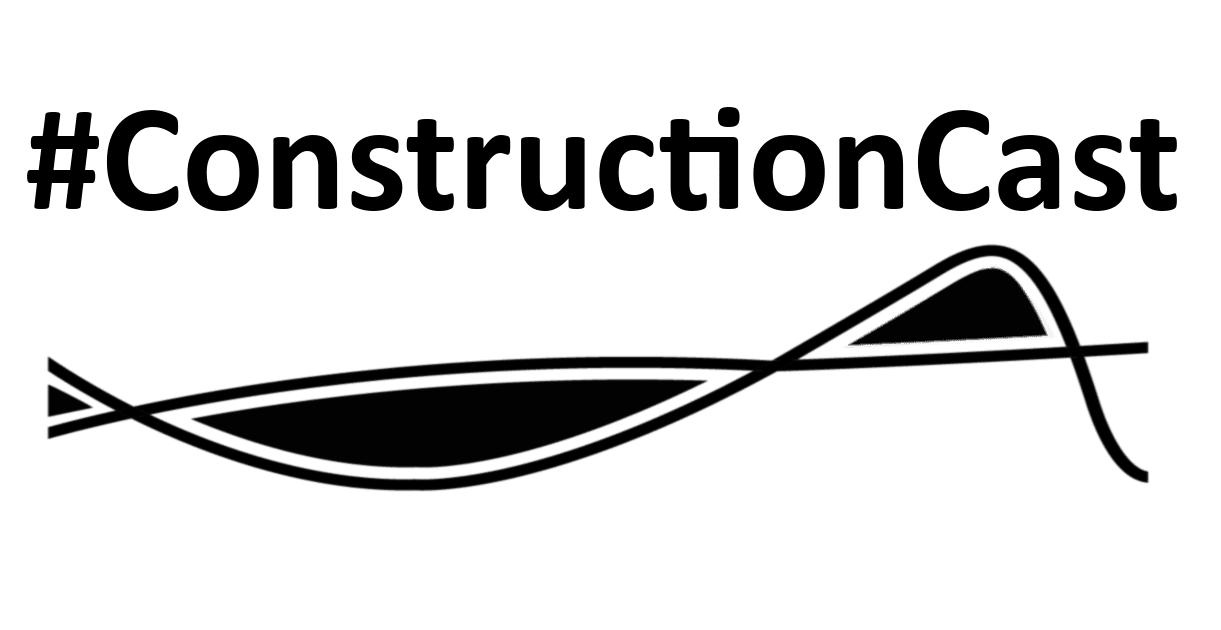On 26th January 2022 we were back for our first #constructioncast of 2022. We kicked off series 4 with a look at international arbitration. In this episode of ConstructionCast Annie chaired the discussion from the International Dispute Resolution Centre (IDRC) where she was joined by Paul Sills. Fatima Balfaqeeh zoomed in from Dubai and William Frain-Bell from Glasgow to complete this panel of arbitrators.
Why arbitration?
International arbitration allows parties to resolve disputes in the country of their choosing. This is important for construction projects whose supply chain consists of companies based all over the world. Every country has differences in their legal systems. By allowing parties to select where the arbitration takes place, they are given flexibility over which rules apply. Arbitration allows parties the freedom to control the dispute resolution process.
Changes in Arbitration Rules in Dubai
Fatima explained that on 20th September 2021, Dubai issued a decree. Known as Decree 34, it effectively dissolved the DIFC-LCIA arbitration centre and moved all the cases and agreements over to the Dubai International Arbitration Centre (DIAC).
This strategic shift intends to increase Dubai’s standing as a leading arbitration seat worldwide. A full map of how things are set to work moving forward is yet to be issued. But the expectation is for DIAC to become a world-class establishment.
William noted that the news has received mixed reactions from those in the region. Some have been concerned that their previous agreements under DIFC-LCIA will change. Arbitration cases that were live before September 2021 will now be dealt with by the DIAC. DIAC has a brilliant reputation already and parties should not be concerned. Their disputes will be administered properly still under DIAC. If parties wish to change the dispute resolution process though they can.
How to pick an arbitration centre
Paul believes the first key choice when picking an arbitration centre need to be where the arbitration is taking place, or the seat. Next, you must establish which institution to use as each has its own rules and procedures. Other things to consider include the recognition and reputation of the seat, the rule of law within that country and the centre’s track record on impartiality. COVID-19 brought new considerations including virtual hearing approaches, administration support and data protection.
Personal experiences with a centre should also impact your decision. But, there are over 90 seats and 50 institutions to choose from so it can be a difficult decision. Ad hoc arbitration is still a popular choice for many though.
Arbitration in the Middle East
Back in April 2020, 26% of all arbitrations worldwide were held in Dubai. The changes at DIAC are a good opportunity for other regions in the Middle East to share the international arbitration stage.
Although DIAC may increase competition within the Emirates it could also promote the UAE as a whole, rather than just Dubai. Generally, the region is becoming more arbitration-friendly. Abu Dubai Global Market (ADGM) has now opened an arbitration centre. There has been a massive shift locally towards fortifying the positions of the UAE in the international arbitration scene with local centres and courts. Overall, it will be a good thing for the region that DIAC has come about as it will raise the profile of the UAE.
Is the future virtual?
The arbitration community has quickly embraced virtual hearings. But as we begin to ease out of the pandemic will the trend of virtual hearings will continue?
Early on, many were unsure about whether there would be some issues with taking evidence virtually. But William notes that most of his colleagues and peers have begun to realise it works well. Benefits include allowing arbitration to occur without too much international travel, keeping costs down and opening doors for a huge variety of opportunities for arbitrators. William believes for certain hearings there will be a move to 100% virtual. But in-person hearings will happen still, particularly when there are key witnesses.
Fatima has seen very polarising views on this topic with people at extreme ends of the argument. With some in complete agreement with William and others saying passionately against. One argument is that it denies parties the right to argue their case.
During the pandemic, virtual and hybrid hearings have worked out of necessity but in certain situations, this is not the case. Fatima thinks a clear segregation between when it can, and when it should not be used would be useful. For example, simple dispute where there is not much cross-examination, it works. But for more complex cases where there are lots of witnesses that need cross-examination being in person is necessary. Some countries also do not have the technology or infrastructure to support virtual hearings. In these cases, it will put some people at a disadvantage.
Paul agrees – the pendulum swings both ways. But, he believes more time is needed before things settle down. It is too soon to tell the outcome because some jurisdictions are still in lockdown.
So, what next?
Paul believes construction will continue to be a big contributor to all arbitrations. In 2017, construction disputes made up nearly 25% of all arbitrations. This is likely to continue because of the material shortages and supply chain issues occurring worldwide. Construction insolvency has increased massively over the last year. Emergency arbitrations to call on bonds and contract insolvency will increase as well.
Big construction companies are pushed to find quicker and more cost-effective ways to resolve disputes. As a result, Paul believes an increase in using dispute avoidance boards is likely in the near future.
Mediation on the rise?
It seems so in Fatima’s opinion. In the wake of COVID-19 a lot of companies or disputing parties have decided to settle or use arbitration or mediation. Things that can be resolved by an expert will be. In the UAE there is no specific legislation for adjudication like the UK. But more people have started enquiring about it. There is a higher appetite for mediation as a way to filter through the issues before dealing with the main conflicts in arbitration. Almost all the centres in the UAE support mediation and it is only a matter of time before that is fully engrained.
Finally, a note about Arbitra
Arbitra is a set of full-time neutral arbitrators. They offer a full set of ADR services across the world. The set-up of Arbitra allows the arbitrators to focus on their work by removing any stress or extra work in administration etc.
Arbitra’s offices are based in the IDRC, which is why we were invited to present from one of their virtual hearing rooms for this session. It is a useful location at the heart of the City of London with the team being based in the middle of the centre. This in turn, means the team are on hand for any questions and support that might be needed.
Watch the full webinar recording here on the Limeslade YouTube channel.

